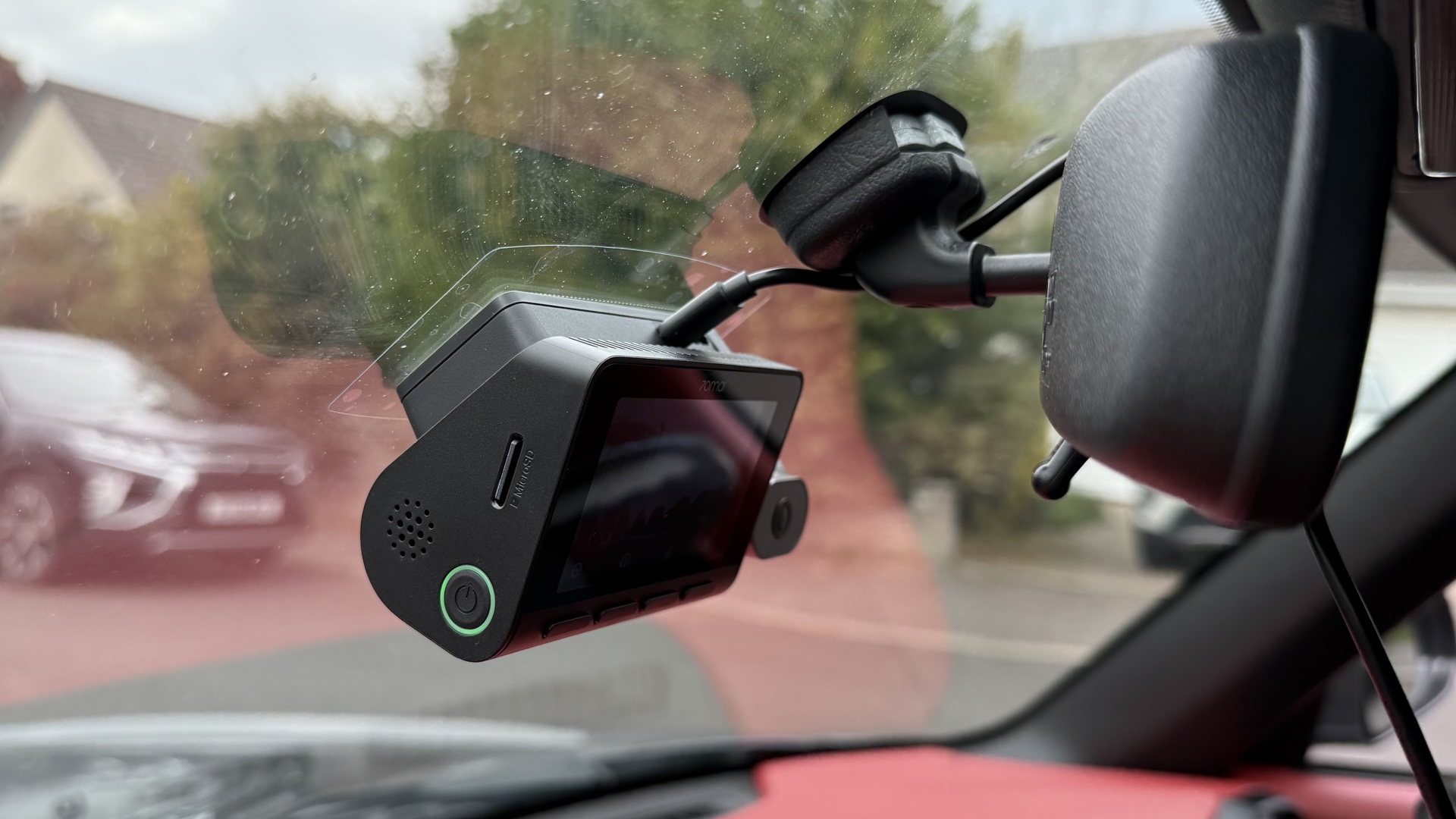TechRadar Verdict
The 70mai 4K T800 dash cam is a bundle ideally suited to anyone who wants more extensive coverage than that delivered by a standard front-facing model. It comes with a higher price tag for the three camera setup, but the 4K quality delivered by the Sony sensors and a suite of optional 24/7 parking tools certainly add value. It needs an optional hardwire kit to get full potential from the latter options, but even used without, the 70mai 4K T800 dash cam is a very potent bundle.
Pros
- +
Triple camera design covers all bases
- +
Excellent quality video and audio too
- +
Full suite of 24/7 parking features
- +
The 70mai app is nicely engineered
Cons
- -
Hardwiring kit is an optional extra
- -
Quite a lot of wiring to plumb in
- -
Pricey because of premium features
- -
More coverage than some may need
Why you can trust TechRadar
70mai Dash Cam 4K T800: two-minute review
I’ve been mildly obsessed with the best dash cams since getting rear-ended by another car. Nowadays, I tend to bypass more basic models, like the Nextbase Piqo and head for something with a more substantial set of features. The Viofo A329 Pro Dash Cam, for example, is a great option. However, the 70mai 4K T800 three dash cam bundle supplants Viofo as my current pick of the dash cam crop.
Since installing it a few weeks ago, I think this model is one of the best for covering all bases thanks to a trio of cameras and lots of shooting power. The 70mai Dash Cam 4K T800 is a premium package, which means it costs more than many other models, even within the rest of the 70mai product portfolio. This is for good reason though, as the bundle is an impressive blend of quality cameras, beefy tech and the sort of user-friendly design that makes setting it up appealing for anyone who’s short on time.
The front and rear cameras both feature Sony IMX678 Starvis sensors, which capture 3840 x 2160p 4K video at 30 frames per second with a 146-degree field of view. The cockpit-facing camera shoots 1920 x 1080p footage, so combined there’s effectively complete coverage both outside and in. Adding to the appeal is a raft of bang-up-to date tech specifications, that including Wi-Fi 6 at 5GHz for speedy transfer of those larger 4K files, plus voice command operation, storage up to 512GB via microSD card and a power supply that uses a supercapacitor arrangement.
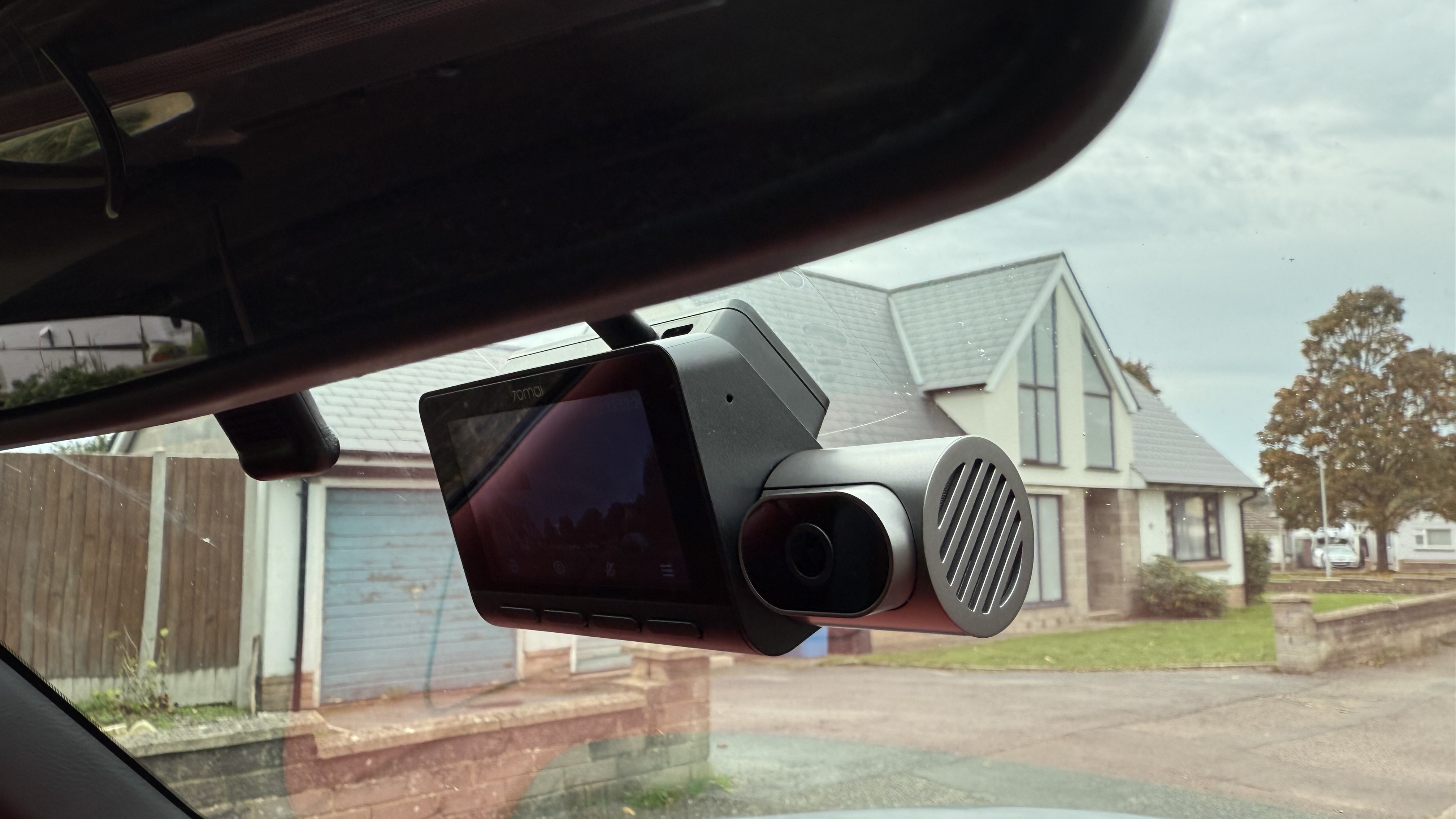
Alongside these impressive specs, I also love the after-dark and low-light capabilities of the 70mai 4K T800. It’s got 70mai Lumi Vision, that helps enhance footage in less-than-ideal conditions, plus there’s the so-called ‘Night Owl Vision’ which captures excellent footage in the dark. I’m also keen on the subtle features, like the MaiColor Vivid+ Solution technology that boosts the exposure capabilities of the cameras to tackle issues that can occur when shooting through different types of windshield glass.
Crucially, for me at least, the 70mai 4K T800 benefits from upgraded Buffered Emergency Recording, which can work from a default 1 minute right up to 3 minutes. The usefulness of this feature is everything, with the ability to retain footage of any kind of incident before, during and after it happens. The way it can do this without me having to worry about it makes the 70mai 4K T800 a very dependable option. If I needed them, I’d also be pretty pleased with the Smart Parking Guardian Mode, which offers permanent 24/7 monitoring in locations such as car parks. An additional, hardwire kit is needed to deploy this, however.
Overall, the 70mai 4K T800 is a complete solution that offers complete coverage with a specification and feature set that’s right up there with the best of them. 70mai also completes this comprehensive dash cam package by supplementing it with an excellent app, which I have used previously without fuss or bother.
70mai Dash Cam 4K T800: price and availability
The 70mai Dash Cam 4K T800 is available to buy now and can be purchased from Amazon in the USA for $400 as a Premium Set bundle that includes the rear camera. It can also be purchased directly from the 70mai website. Meanwhile, Amazon in the UK also sells the bundle for £450.
70mai Dash Cam 4K T800: specs
Video | Front: 3840 x 2160p (4K) |
Field of view (FOV) | 146 degrees front / 146 degrees rear / 147 degrees interior |
Storage | MicroSD up to 512GB, Cloud |
GPS | Yes |
Parking mode | Yes, with constant power cable, not included |
App support | 70mai app |
Dimensions | 1.81 x 4.84 x 2.48 inches / 4.5 x 12.2 x 6.2 cm |
Weight | 2.07lb / 938g |
Battery | Yes |
70mai Dash Cam 4K T800: Design
I really like the design of the 70mai Dash Cam 4K T800. The main camera unit, which contains both the front-facing lens as well as the cockpit surveillance camera, is chunky but relatively unobtrusive. This is mainly down to the way it has been designed, with a body that can be easily attached near a rear-view mirror without feeling like it's encroaching too much on screen space.
That was good news for me as I fitted the 70mai Dash Cam 4K T800 to the screen of my two-seater sports car, which does have a fairly small windshield. The main camera has a sloping bracket, which contains the self-adhesive pad that can be mounted using a static sheet on the glass to make removal easier.
The really clever bit with this design, though, is the way that the 70mai designers have made the cockpit camera lens swivel on its mount. This means it can be adjusted so the view is just right and covers all of the interior space. I found it really useful because my two-seater makes mounting a rear-facing camera all but impossible due to a retracting top. The 70mai Dash Cam 4K T800 covers this scenario as the cockpit camera also gets the view out of the back window. In my case, it effectively does the three-camera job using just two.
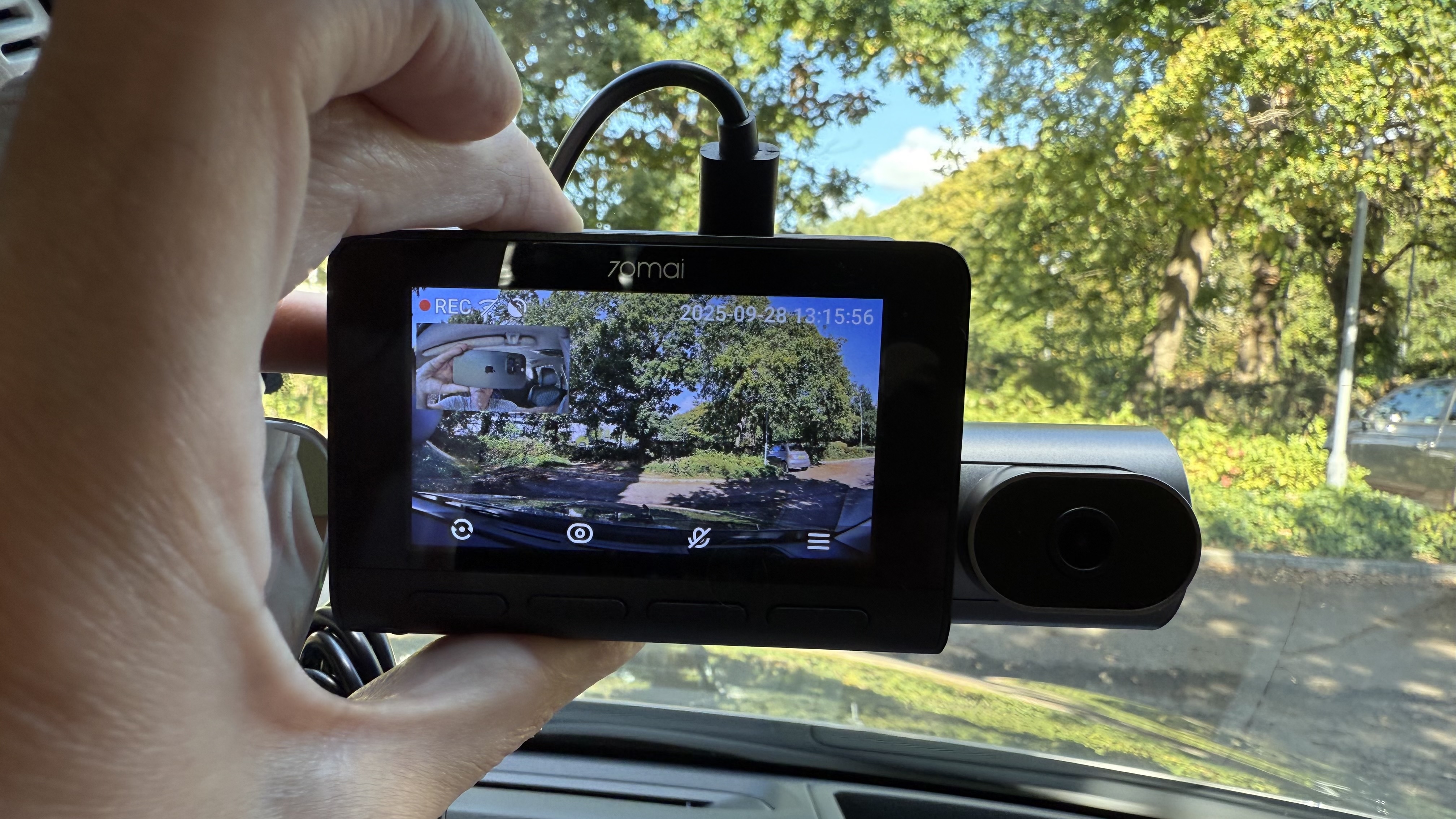
However, the third camera, if it is needed, is the standard barrel-type design and that too can be adjusted using the swivel technique, once it’s been stuck in situ using the adhesive pad. Again, this can be done using a static sheet attached to the glass, then sticking the camera to that if the setup might need to be moved to another vehicle at some point.
Around the back of the main camera unit there’s a 3-inch IPS display screen, which features a very decent 640x360 resolution that works well in a variety of lighting conditions. Once powered up, the view displayed is a full-front outlook with a picture-in-picture layout showing the cockpit view to one side. Attach the rear-facing camera and that view also appears within the screen space. Amazingly, it all seems to fit in perfectly fine.
On the side of the body, there’s a circular light that is coloured depending on the mode of operation. On the other side is a microSD card slot and along the bottom of the camera, underneath the screen, are four control buttons. If the screen is powered up there are matching menu icons on the screen itself, making setup and adjustment all very straightforward. The 70mai app is best used in order to get the best from all of the features and functions though. It’s also great for managing those chunky 4K files.
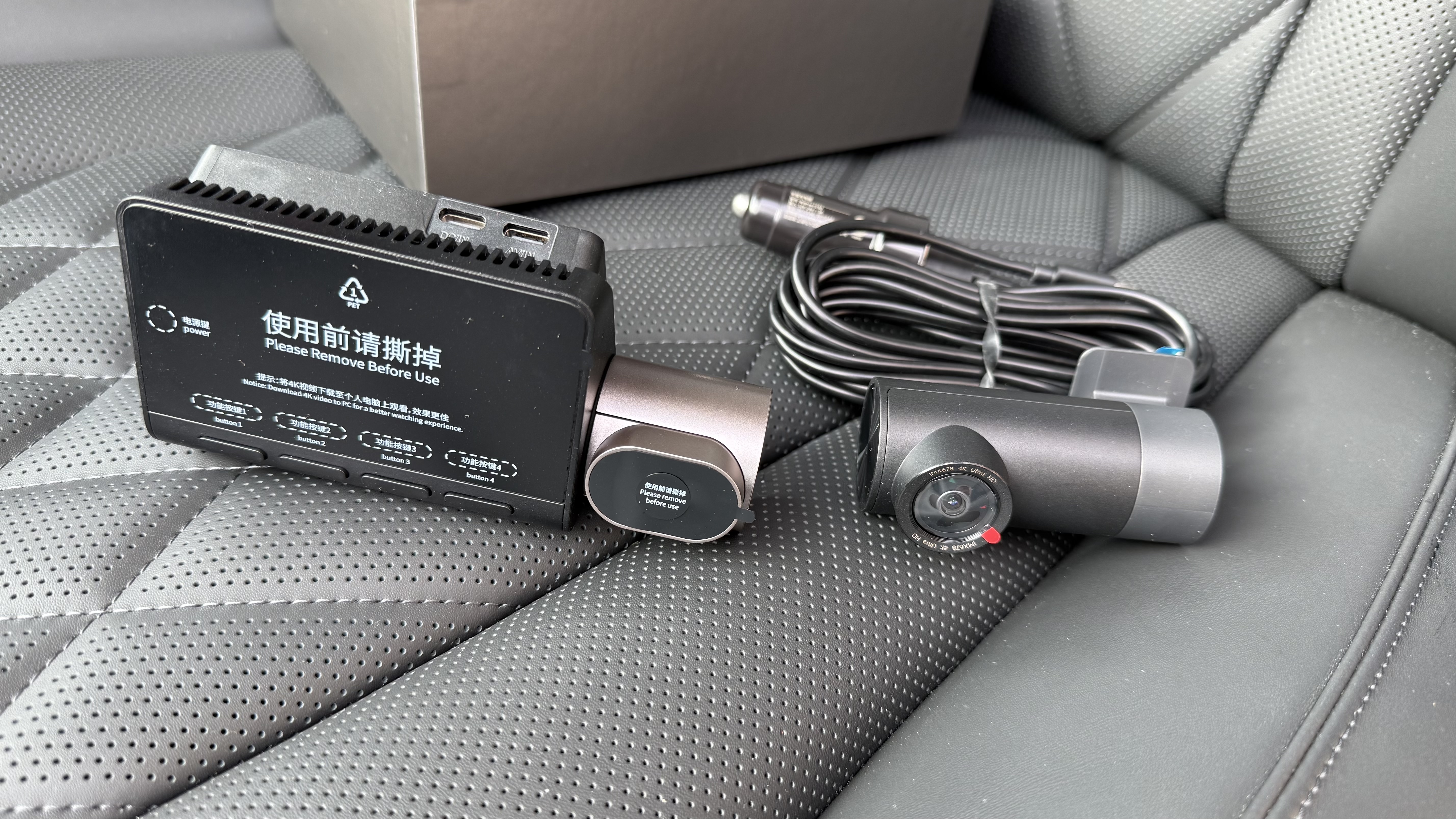
70mai Dash Cam 4K T800: Performance
Alongside a practical design, the 70mai Dash Cam 4K T800 has proved to be very dependable in the performance department. If the three-camera setup is being used there is some inevitable time taken to plumb in the various cables and get everything into place. However, I found having those camera lenses mounted in a rotating case made getting the shooting angle really straightforward. This was further aided by the live view that appears on the rear screen.
I also found the setup procedure a no-nonsense affair, with the usual formatting of the memory card needed to get the ball rolling. I also had to pick through the time and date settings, which is very simple using the default time zone sections, or it can be setup manually. I did all the basic steps using the controls on the back of the camera, and the buttons and menu options were all self-explanatory.
It’s also well worth getting the 70mai app, which acts as a brilliant supplement to the camera bundle itself. Available for iOS and Android, the software is nicely executed and makes managing those larger 4K files much easier. This is helped by the Wi-Fi connectivity of the 70mai Dash Cam 4K T800, which features Wi-Fi 6 that can be used at 5GHz for faster transfers.
Sign up for breaking news, reviews, opinion, top tech deals, and more.
Footage-wise, all three cameras are excellent. The quality is of a really good standard, with great definition when it comes to things like license plates and road signs. Best of all, the combined field of view of the trio of lenses offers up complete coverage. I found using a two-camera setup worked well in my small car too, with crisp and clear cockpit footage complimenting the views of the road ahead. And, because my car’s cockpit is so small, it’s possible to enjoy a recorded view through the back window, just by using the cockpit camera.
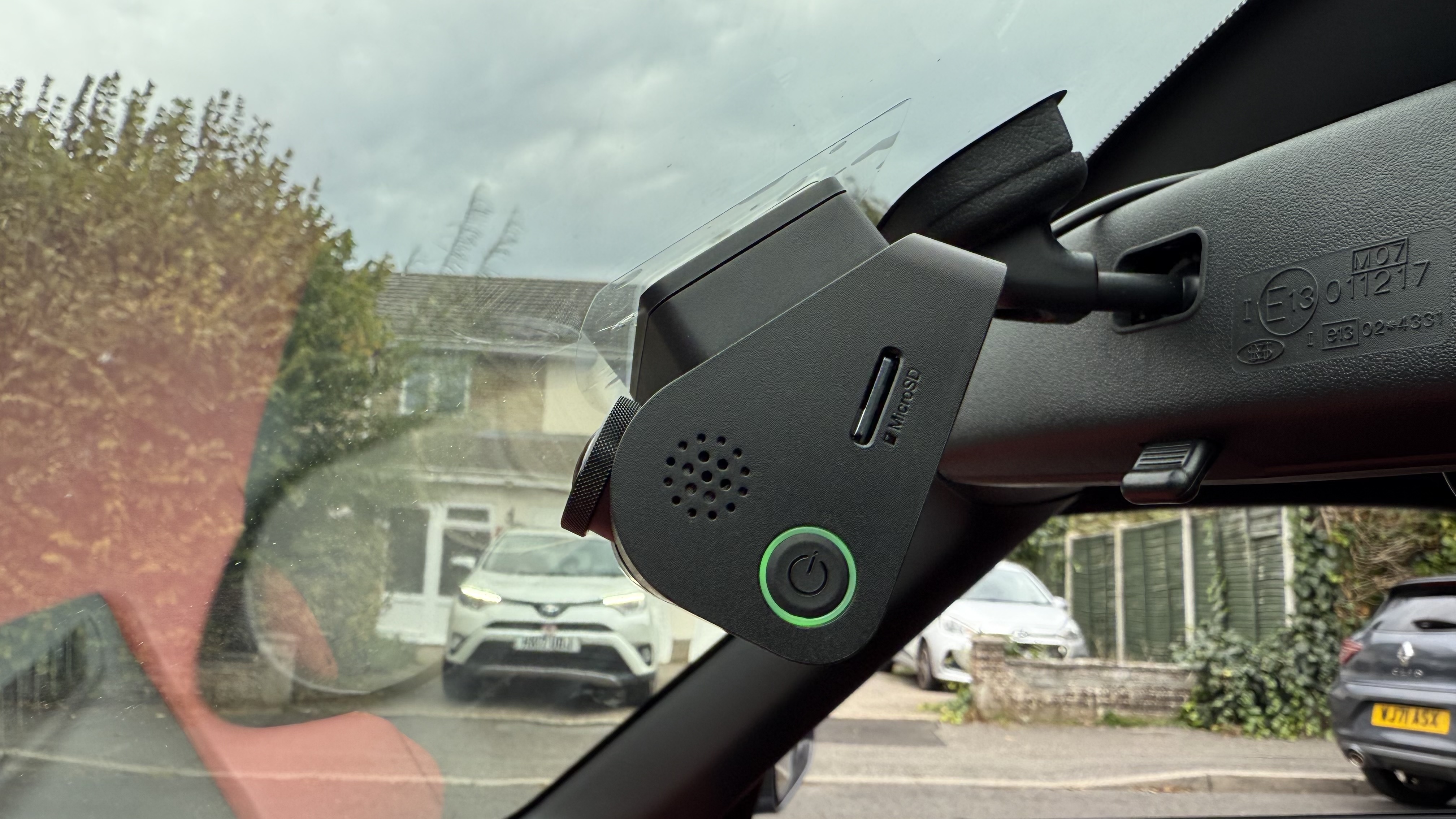
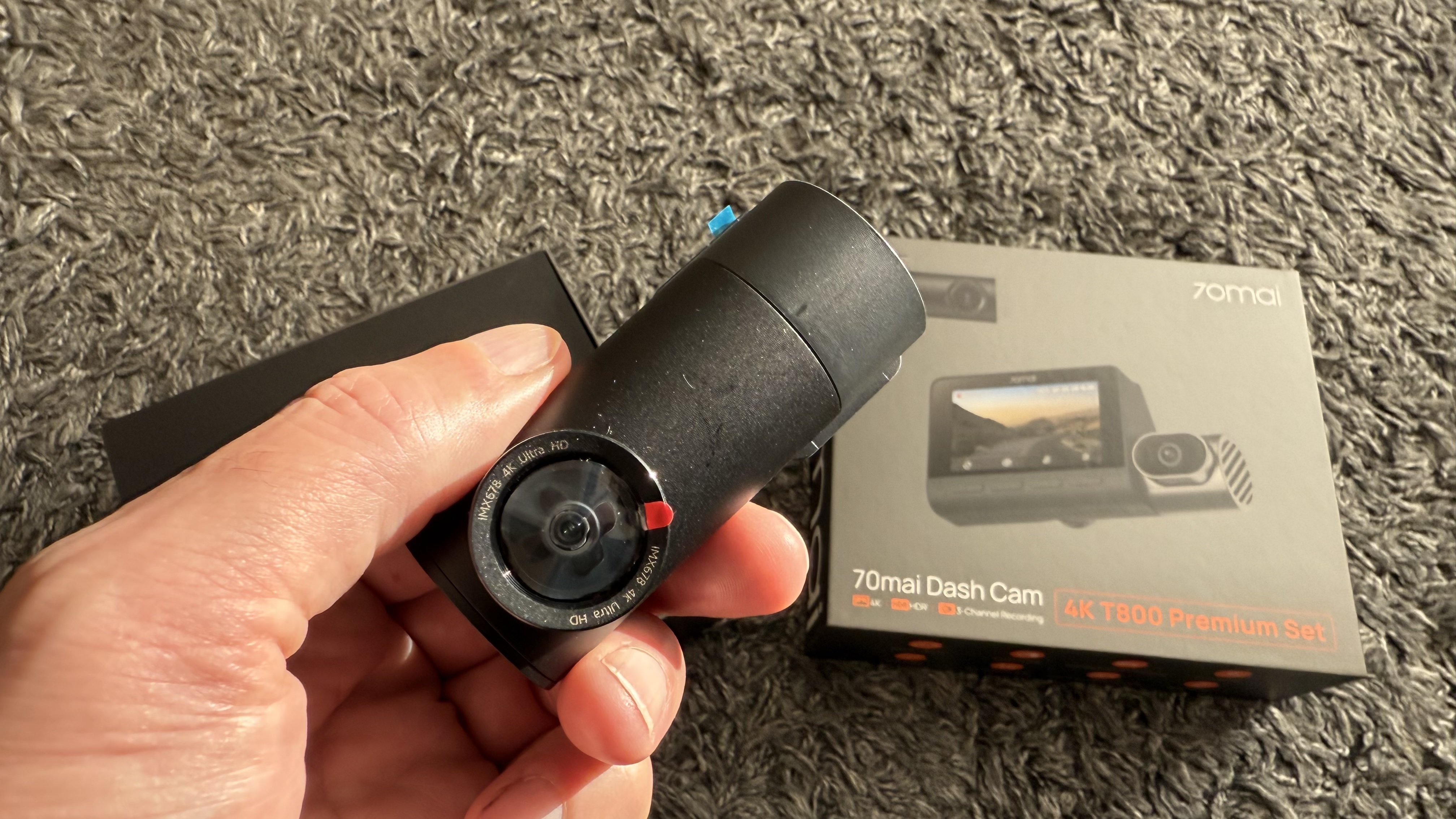
The 70mai 4K T800 dash cam is generously endowed with additional features and functions too. Of course, the suite of parking surveillance tools only gets tapped into by enlisting the services of an optional hardwire kit. However, there is also plenty to enjoy if hardwiring isn’t an option, including voice control for added convenience.
Best of the specification features, though, has to be the muscle offered by the Sony Starvis 2 sensor technology. 70mai reckons the sensors in this bundle help deliver 90 percent higher light sensitivity and 100 percent improved low-light performance. I see no reason to disagree.
Should you buy the 70mai Dash Cam 4K T800?
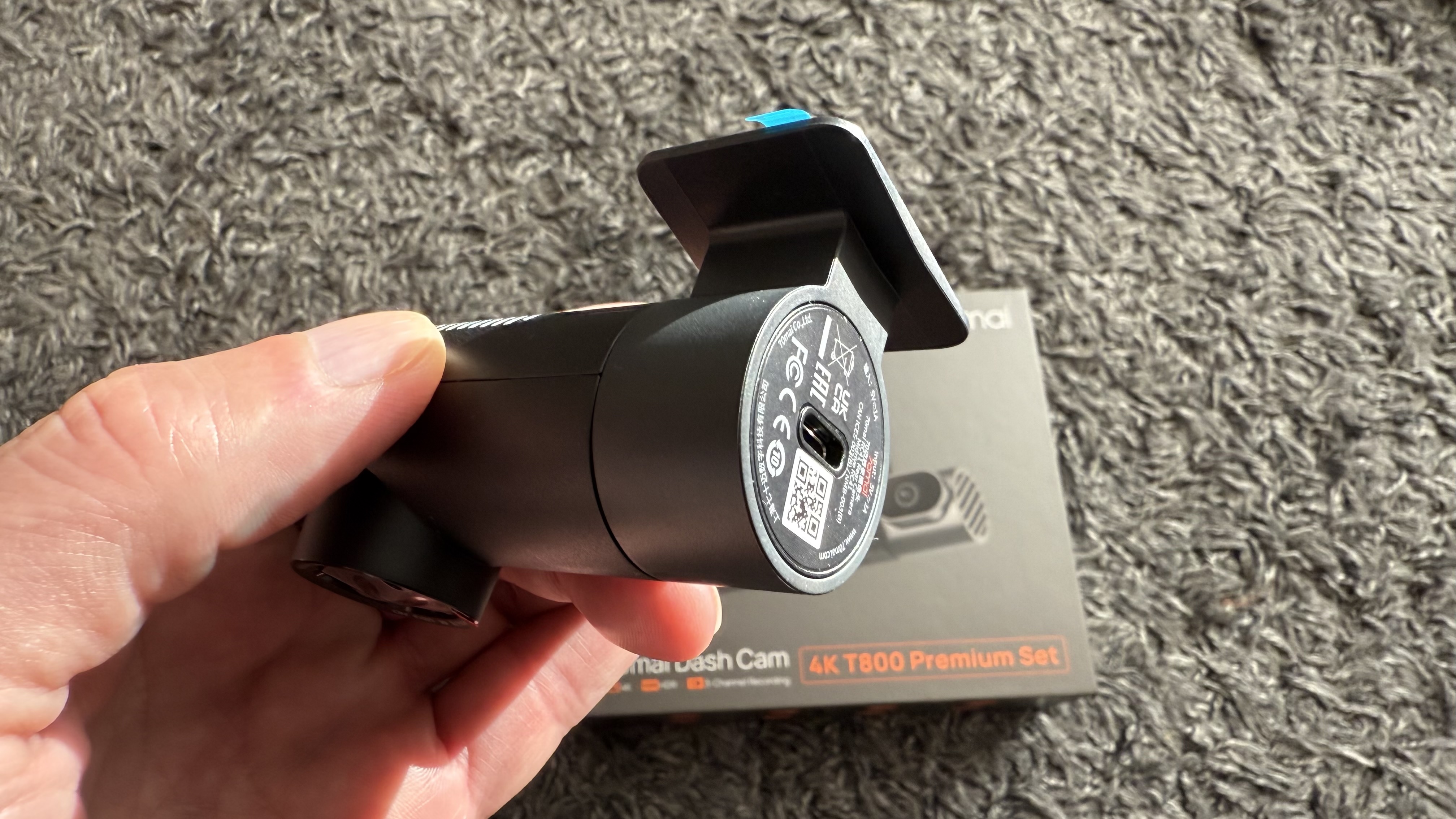
Buy it if...
You want a three camera solution
The 4K T800 can be used as a single camera if that's all you need, but it is best exploited via the Premium Set bundle for complete coverage.
Good quality video is a must-have
Anyone with a desire to improve the quality of their dash cam video content will find the 4K footage returned by the 4K T800 top drawer.
An excellent supporting app is required
The 70mai 4K T800 packs a brilliant supplementary app, which is available for both iOS and Android. It allows for easy management of those big video files.
Don't buy it if...
Three cameras might seem too much
Some of us prefer a single camera for front-facing coverage. The 70mai 4K T800 works best as a bundle, but might be too much for some users.
You want less wiring not more
Admittedly, the rear camera of the 70mai 4K T800 does add to the wiring job, but everything needed to get the job done is inside the box, save for a hardwire kit.
You need a more compact model
While the 70mai 4K T800 is nicely proportioned, it might be a little too big for some very small windshields. However, it worked just fine in the sports car used here..
How I tested the 70mai Dash Cam 4K T800
- I installed the dash cam into a test car for an initial period of two weeks
- I used it for several journeys during both day and night
- I connected it to my phone and downloaded recordings for comparison
70mai loaned me the Dash Cam 4K T800 and supplied everything I needed to test it.
I subsequently used the dash cam over a period of around two weeks, after being sent the Premium Set bundle, which contains the main camera unit with two lenses plus the supplementary rear-facing camera. Using the contents of the box, I was able to plumb in the cameras and connect them using the supplied cables. 70mai also supply a fitting tool, which was used to push wiring behind trim panels where it was needed.
I also downloaded the app, which was installed on an iPhone 17 and put through its paces. The Wi-Fi connectivity between the cameras and app was also tested, which based on the size of the 4K video files, was a big part of the testing criteria. It all worked as expected.
- First reviewed October 2025

Rob Clymo has been a tech journalist for more years than he can actually remember, having started out in the wacky world of print magazines before discovering the power of the internet. Since he's been all-digital he has run the Innovation channel during a few years at Microsoft as well as turning out regular news, reviews, features and other content for the likes of TechRadar, TechRadar Pro, Tom's Guide, Fit&Well, Gizmodo, Shortlist, Automotive Interiors World, Automotive Testing Technology International, Future of Transportation and Electric & Hybrid Vehicle Technology International. In the rare moments he's not working he's usually out and about on one of numerous e-bikes in his collection.
You must confirm your public display name before commenting
Please logout and then login again, you will then be prompted to enter your display name.
